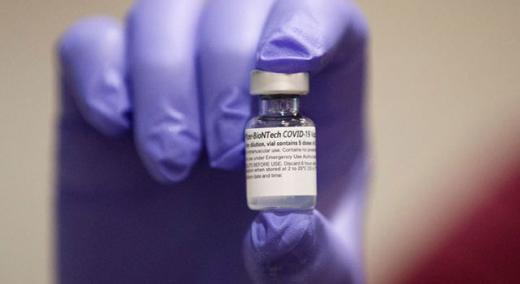AP: Mike Morones
Body
Ending the pandemic depends on achieving herd immunity, estimated at 70 percent or even 80 percent to 90 percent of a population. With some 30 percent of Americans telling pollsters they have no interest in getting vaccinated, that’s cutting it a bit close. The numbers are even worse in many other countries.
…
Want to continue?
Log in or create a FREE account.
By logging in you agree to receive communication from Quality Digest.
Privacy Policy.

Comments
Nice article but
a. With two of the gene therapy formulas - blood clots have reared their ugly heads Astra and Johnson.
b. A third gene therapy makes one more suspectible to the South African Variant.
The real solution is the anti-bodies formula by Regeneron that stops the virus if rendered in the early stages. And people are getting very sick after receiving these gene therapies - fever, aches, headaches etc.
Moreever, it seems to have been forgotten that President Trump and Ben Carson (both older men) were obviously significantly helped by the Regeneron formulation.
Shown to be remarkably effective.
The Biden approach is very disconcerning.
Or it could be
Or it might also be possible employers are more trusted because of what they say and how they say it, so that if employers start saying what politicians have been saying and how they've been saying it then employers too will be mistrusted. But you do you.
People should get the vaccine
I got my second vaccine (Pfizer) yesterday with no ill effects. The chance of death or serious illness from it is far less than that of the disease itself. About 1 in 1000 Americans have died from Covid-19, with many survivors suffering lifelong damage. The chance of harm from the vaccines is far less.
In addition, the lesser side effects (fever, cold symptoms) are actually evidence that the vaccine is working; the immune system recognizes it as something foreign and undesirable, and this triggers the symptoms. This is something that should be explained to people.
Vaccination Data
I'm very disappointed that your organization ignores the mountains of data showing Covid for the media event it is. It is certainly not the Plague nor as serious as the media advertises and sells. To suggest that vaccination skepticism is supported by uninformed people. It's not only intellectually dishonest, but is also insulting to those of us who examine the data and speak out against the sham that Covid is. No doubt you'll right me off as a nut, but I'm unsubscring from your email, will no longer use your publications, and will be sure to let my fellow quality professionals know how you regard data vs.media hype. Very disappointed.
Covid 19 is real
I believe that the real disservice is to tell people that Covid-19 is not real and that people should not get vaccinated (or wear face masks) because this can result in death or serious harm to countless people. Most (about 99%) of the people who get it survive but some suffer life-long damage to organ systems including the brain. A disease that kills 1% of the people who get it, and spreads very easily, must be taken seriously. We lost hundreds of thousands of people because some people, and often not those to suffer the consequences, did not (e.g. college students partying, and then bringing Covid-19 home to parents and grandparents). I remember that I had an uncle in his late 80s so, when I went to visit him and his family in Illinois some time back, I decided to get my (live) flu vaccine after and not before to ensure that I would not expose him to even a weakened virus. The very thought of bringing full-strength Covid-19 home to senior family members and others is appalling.
Anti-vaxxers have been with us ever since the invention of the first genuine vaccine, which was based on cowpox. (Vache is French for cow, hence the origin of "vaccine.") Here is a depiction of people getting the vaccine and turning into cows. https://en.wikipedia.org/wiki/File:The_cow_pock.jpg, note the reference to tne "anti-vaccine society.") The truth is that Edward Jenner may have saved more human lives than anybody else in history, and smallpox is no longer a problem.
Covid-19 has killed more Americans than we lost in the Second World War, although we can perhaps deduct the 30 to 80 thousand who would have otherwise died from ordinary flu. The countermeasures used against Covid-19 were clearly not enough to stop it, although they probably contained it enough to avoid millions of deaths, but they also work against ordinary flu for which most people get the annual vaccine. The combination of the two (anti-Covid measures plus flu vaccine) resulted in an essentially nonexistent 2020-2021 flu season as I predicted about a year ago.
Add new comment